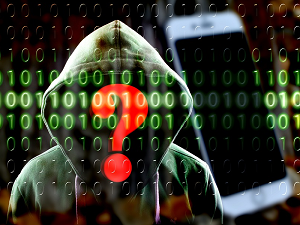 Recently, Samsung's corporate network was compromised. This is bad news by itself. Recent confirmations by the company have revealed that hackers stole confidential customer data as well as the source code of the software that is used in its Galaxy smartphones.
Recently, Samsung's corporate network was compromised. This is bad news by itself. Recent confirmations by the company have revealed that hackers stole confidential customer data as well as the source code of the software that is used in its Galaxy smartphones.
"Lapsus$" is the name of the hacker responsible for the attack. They revealed that they had seized almost 190GB worth of archives shortly after the attack.
This group has been extremely busy in 2022, which is quite alarming. They have also been very successful. A week before the Samsung data announcement, the same group released a 20GB sample document containing information that were stolen from Nvidia. This sample, the group claims, is part of a larger collection of stolen documents that exceeds 1TB.
Apart from the source code, at this time we don't know what data the hackers might have obtained when they successfully breached Samsung’s network.
We don't know what the 1TB cache documents containing Nvidia's stolen data are worth. Lapsus$ members explained that they are currently in negotiations to sell that data.
This is the world that we live in. This is 2022's world. And it will continue to change over the years. It is impossible to predict the long-term consequences, but the advice on how to protect yourself from such attacks remains the same.
Minimize Risk of Cybersecurity Attack
To minimize your risk, make sure your software is up-to-date with security patches. Also, educate your employees regularly about the dangers of phishing attacks to reduce your risk.
If that fails, make sure you have backups and a team that can quickly respond to any security breach. This is not a perfect solution but it will make your target much more difficult and that's a good thing.
Next, hire a cybersecurity team to monitor your network. Integrated Technology Systems has the skills and expertise to keep your data secure.
Hackers are increasingly targeting mobile devices
 Here's something you won't like. According to Proofpoint cybersecurity researchers, malware attacks on mobile devices have increased by 500 percent in the first months of 2022. This year's most notable peak occurred in February.
Here's something you won't like. According to Proofpoint cybersecurity researchers, malware attacks on mobile devices have increased by 500 percent in the first months of 2022. This year's most notable peak occurred in February.
The majority of malware that targets mobile devices is relatively benign. It is unlikely that the malware will encrypt all files on your phone and demand ransom. While there are some malware strains capable of doing that, the majority of malware that infects phones is silent and steals passwords and usernames.
You may be infected by a malware strain that takes screenshots and tracks your location over time. These are rare cases, but they do happen. However, malware that steals account information can have a devastating effect on your long-term financial health. Hackers could use this information to steal your identity and drain your accounts. They can also max out your credit card limits.
Three main routes are used by hackers to install malware on target Android and iOS devices.
The most popular method is to poison an application and have it placed on the Apple Store or Google Play Store. Users will then download the malware and install it, completely unaware that they are also installing malware.
Security professionals advise against tapping links in SMS messages. These links may come from a friend or may be posed by hackers pretending to be friends. You will be taken to a malicious website that installs malware behind the scenes when you click the link.
Finally, there's email. Everyone has probably heard the warnings about not clicking on attachments or clicking on links in emails. This applies to all mail, no matter if you are reading it on your computer or your phone.
The bottom line is you are becoming a more dangerous target, regardless of whether you're using your phone or PC. Be careful.
Integrated Technology Systems has the technology resources to keep you and your employees safe. Call us today BEFORE your data is compromised.
Integrated Technology Systems
6 East 45th Street, Suite 400
New York, NY 10017
212-750-5420



